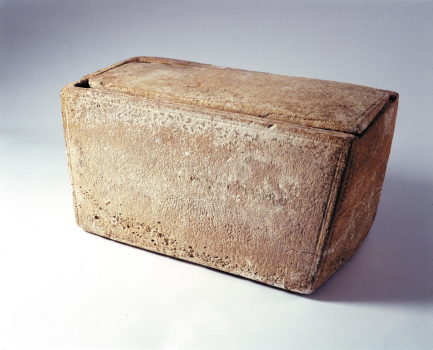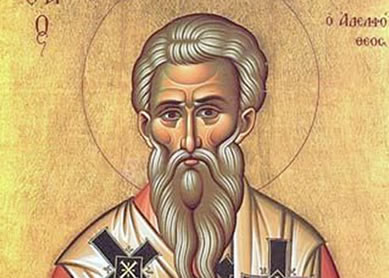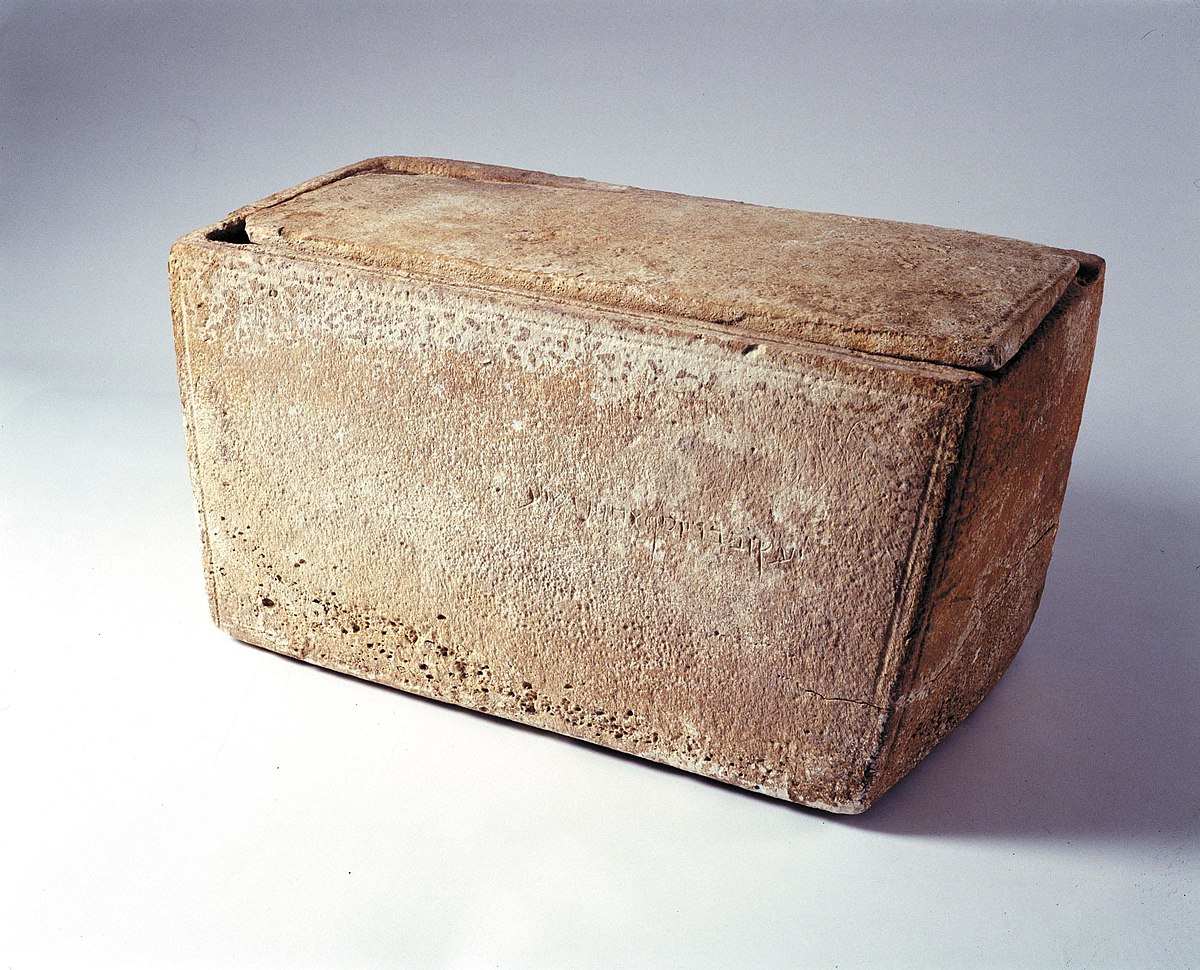I'm not sure where you got your translation of Matt. 1:25, but it is clearly faulty. You, or someone else, added the word "only."
Even so, the Bible wasn't written in English, nor was it written within our cultural norms. The word until used back in Jesus' day, did not imply that something happened after. The word until here just says what happened up to the time of Christ’s birth. It doesn’t imply anything about what happened after that, although our modern use of the word until seems to imply that. For an example of this, look at 2 Samuel 6:23, which says, “Michal the daughter of Saul had no children till the day of her death.” We’re obviously not supposed to assume that she had children after she died.
Ok... here are some things for you or anyone to explain....
James.
And before you cite everything you can from this being a cousin to a son from another marriage of Joseph, ergo half brother... THINK. Where in the bible itself does it mention by name anyone who is called someone's brother without having blood ties. It is often said that is what they did. Is it biblical?
Who was James, the brother of Jesus, in the Bible? How is understanding the life of James, the brother of Jesus valuable to our spiritual growth?
www.gotquestions.org
James was a son of Mary and Joseph and therefore a half-brother to Jesus and brother to Joseph, Simon, Judas, and their sisters (
Matthew 13:55). In the Gospels, James is mentioned a couple of times, but at that time he misunderstood Jesus’ ministry and was not a believer (
John 7:2-5). James becomes one of the earliest witnesses of Jesus’ resurrection (
1 Corinthians 15:7). He then stays in Jerusalem and forms part of the group of believers who pray in the upper room (
Acts 1:14). From that time forward, James’ status within the Jerusalem church begins to grow.

en.wikipedia.org
JAMES 1:1 identifies the author as "James, a servant of God and of the Lord Jesus Christ" who is writing to "the twelve tribes scattered abroad". The epistle is traditionally attributed to
James the brother of Jesus (James the Just),
[3][4] and the audience is generally considered to be
Jewish Christians, who were dispersed outside Israel.
James is always named first when Jesus’ brothers are listed, which in his day likely meant that he was the eldest of the four. The Bible tells us a lot about the life of Jesus' brother. James’ life, ministry, and writings impacted the formation of the Church and continue to transform hearts and...

www.biblestudytools.com
Who Was James, Jesus' Brother?
UPDATEDJuly 05, 2023
Jesus came from a big family. Matthew 13:55-56 names Jesus’ brothers: James, Joseph, Simon, and Judas and mentions sisters (plural), so He had at least six siblings.
James is always named first when Jesus’ brothers are listed, which in his day likely meant that he was the eldest of the four. Known as James the Just and Old Camel Knees, James led the church at Jerusalem until his violent death in AD 62.
Even after more than two years of miracles, James is a skeptic. It would, after all, be rather hard to swallow the idea that the brother you had grown up with was really the Son of God.
Underlying the English James is the Greek Iakobos, which itself approximates the Hebrew Ya’aqov, or “Jacob.” It became conventional in English Bible

biblehub.bibleodyssey.org
Underlying the English
James is the Greek
Iakobos, which itself approximates the Hebrew
Ya’aqov, or “Jacob.” It became conventional in English Bible translations to render this name differently in different contexts in order to differentiate the “Christian”
James from the “Jewish”
Jacob, much as with
Jesus and
Joshua.
Jacob was a common Jewish name in the first century. So it is not surprising that various Jameses appear in the New Testament, including two apostles—one identified as brother of John and son of Zebedee, and the other as son of Alphaeus (Matt 10:2-4)—and the father of a third (Jude, in Luke 6:16). Historically, the most important James of the New Testament is the one identified as the brother of Jesus, sometimes called James the Just.
Was James the Just an actual brother of Jesus?
It is assumed as a matter of course in the New Testament that Jesus had brothers and sisters (Mark 3:31, John 7:1-10, Acts 1:14, 1Cor 9:5), one of whom was named James (Matt 13:55, Mark 6:3).
As this James rose to prominence, it became conventional to distinguish him from others with reference to his still more famous brother. It is clear from the letters of Paul that this began already during James’s lifetime (Gal 1:19). Long after his death, James continued to be identified in this way by writers such as Hegesippus, Eusebius, Jerome, Pseudo-Clement, and even the first-century Jewish historian Josephus (assuming the reference in
Jewish Antiquities 20.197-203 is not an interpolation, as has sometimes been suggested). After his death, reportedly at the hands of an interim Judean authority around 62 C.E., this James was also frequently identified by the epithet “the Just” and, more enigmatically, “Oblias” (Hegesippus in Eusebius,
Ecclesiastical History, 2.23.7).
It is only when church doctrine became concerned with the sexuality of Mary as a theological problem in its own right that some began to insist that Jesus could not have had siblings. Different theories were generated to explain references to them in scripture and tradition. Some speculated that they were children of Joseph from a previous marriage, making James only a stepbrother of Jesus. According to a still later theory,
brother in this case meant
cousin—an explanation that had the added bonus of allowing for the virginity of Joseph as well.
Such theories, of course, are not impossible. But that does not mean they are in any way historically likely. The most natural reading of the evidence is that James was called brother of Jesus in the same sense that John was called brother of the apostle James, and Andrew called brother of Simon Peter (Mark 1:16, Mark 1:19).
And because the sons of Mary were the
brothers of Jesus, our Lord is
called "the
brother of
James" (Mark, vi. 3), and
James is
called " the Lord's
brother" (Gal. i. 19); that is, mnutually
brothers to each
other. These two men, Jesus and
James, are
called brothers, because they were the sons of the same....
And then there is the ... JAMES OSSUARY

en.wikipedia.org
The
James Ossuary is a 1st-century
limestone box that was used for containing the bones of the dead. An
Aramaic inscription meaning "Jacob (James), son of Joseph, brother of Jesus" is cut into one side of the box. The ossuary attracted scholarly attention due to its apparent association with the Christian
holy family.
[1]

The James ossuary was on display at the Royal Ontario Museum from November 15, 2002 to January 5, 2003.








